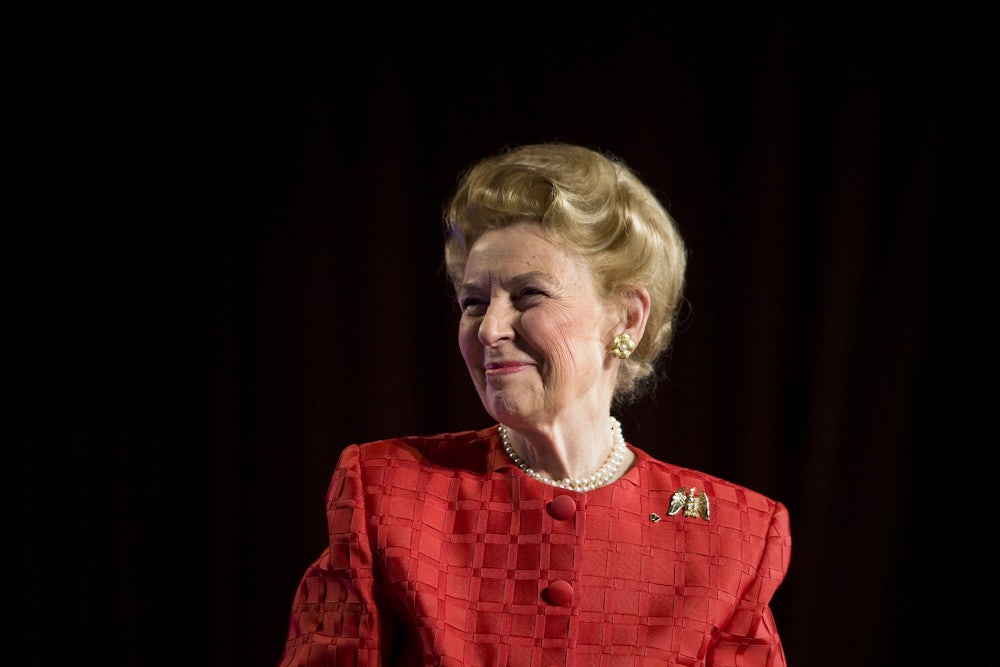Schlafly, who died Monday at age 92, was one of the most important American right-wing political activists of the last century, ranking with William F. Buckley, Jr. and Roger Ailes. Best known for her unbridled anti-feminism and work in defeating the Equal Rights Amendment, Schlafly’s key contribution was to codify the central myth of the American right: that conservative Republicans are constantly being betrayed by establishment party leaders.
In her popular 1964 book A Choice Not An Echo, which sold more than 3 million copies, Schlafly accused “the secret kingmakers” of the party of constantly undermining conservative champions like Robert Taft and Barry Goldwater and using back-door deals to insure the victory of compromising candidates like Wendell Willkie and Dwight Eisenhower.
If liberal and moderate Republicans have disappeared from American politics, it is in no small part due to the grassroots efforts of Schlafly. Prior to the 1980s, it was quite common for Republicans to be social liberals: Respectable Republican women like Betty Ford and Barbara Bush were bulwarks of Planned Parenthood (founded by Margaret Sanger, who herself became a Republican late in life). Richard Nixon supported the ERA.
It was Schlafly who made gender equality a partisan issue, pushing her party to oppose not just the ERA but also abortion and LGBT rights. Ironically Schlafly, one of the most politically effective women in American history, helped create the party’s gender gap. With the rise of social conservatism in the Republican Party, women (especially single women and women of color) started to vote much more heavily for the Democratic Party.
Schlafly’s final major political act, which tore apart her political organization, Eagle Forum, was to support Donald Trump over Ted Cruz. Here again there was an irony. Cruz had tried to win over the Schlafly wing of the GOP by portraying himself as the upstart rebel fighting the party kingmakers. But Trump outflanked Cruz by being even more of an outsider and portraying Cruz himself as a typical politician. In supporting Trump, Schlafly proved that even in the twilight of her life, she still wanted to push the party toward ever more destructive politics.
